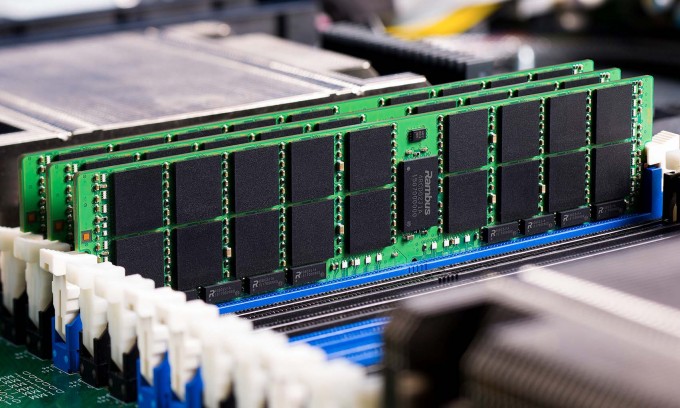- Qualcomm Launches Snapdragon 4 Gen 2 Mobile Platform
- AMD Launches Ryzen PRO 7000 Series Mobile & Desktop Platform
- Intel Launches Sleek Single-Slot Arc Pro A60 Workstation Graphics Card
- NVIDIA Announces Latest Ada Lovelace Additions: GeForce RTX 4060 Ti & RTX 4060
- Maxon Redshift With AMD Radeon GPU Rendering Support Now Available
Rambus Designing DDR4 Chipsets For High-Density Servers
After a long hiatus in the public eye, Rambus will start to design and manufacture memory chipsets for the server market, providing access to huge memory pools for companies that need it.
For those unfamiliar with computer history, Rambus is traditionally known as being a patent bully back in the day (not quite a troll), as well as the creator of the somewhat infamous RDRAM. On the latter point, Rambus created a stop-gap RAM technology that bridged the transition from SDRAM, to what later became the ubiquitous DDR. For those that decided to skip RDRAM, later found themselves in the middle of a patent war; key technologies used in DDR were later found to be obfuscated Rambus patents… and the technology world haven’t forgiven them since.
Shady tactics aside, Rambus also supplied RAM for the N64, the Playstation 2, and even an updated version of RDRAM in the form of XDR for the Playstation 3. Despite it’s high latency, it was chosen for it’s high bandwidth, and shares many features with GDDR memory, used in graphics cards. However, for the last few years, Rambus has remained quiet, until now.
Memory chipsets are effectively an interface between the CPU and RAM. CPUs have built-in memory controllers, but are often restricted by the number of modules that can used, due to power limitations. In order to have large memory pools, the memory needs to be low power, or have its clocked reduced. Registered memory helped by introducing a buffer, with later developments introducing Load Reduced memory, effectively allowing memory chips to share the same data lines.
Rambus will be creating the chips that allow for Registered and Load Reduced memory to work, and bundling them with its own DDR4 memory – effectively selling the whole solution in one. The RB26 R+ interface chipsets are also going to be fully JEDEC compliant for 2666 and even 2933MHz at 1.2v.
Does this mean a full comeback? Probably not. It may be a stepping stone, but at least the company is putting its money where its mouth is and actually producing products again, rather than simply living off patent royalties, marking a change in the company’s policy from previous years.





